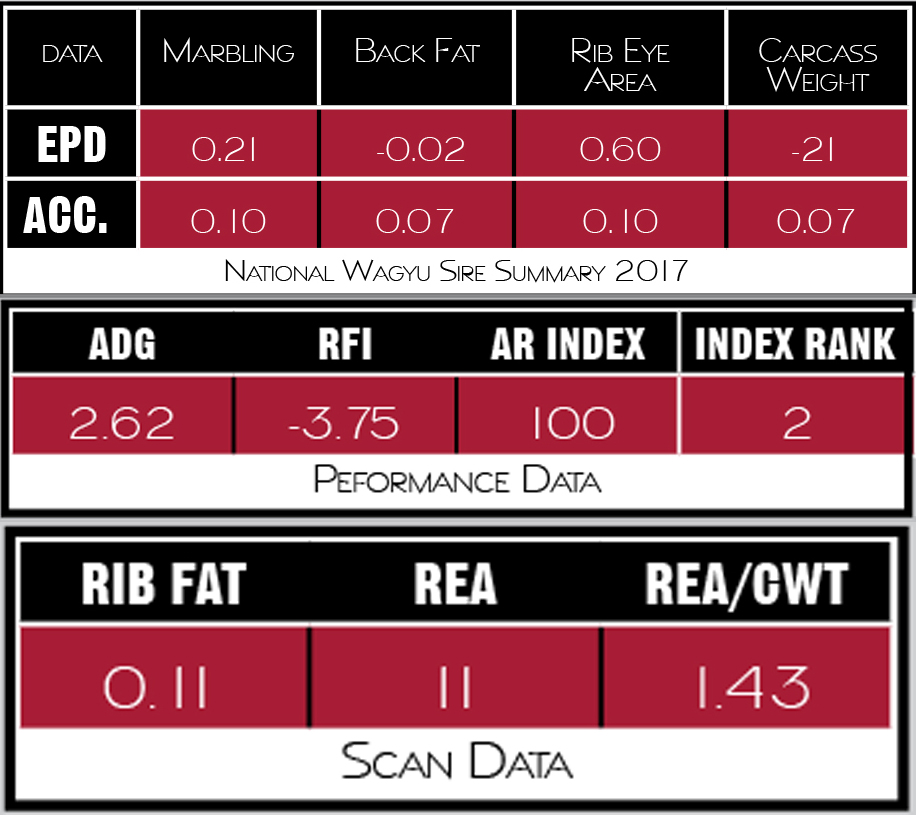Wagyu is not a generic term for just any Japanese cow. The term Wagyu refers to a specific breed of Japanese cattle with very special genetic qualities. There are four breeds of cattle native to Japan. Of those four, one is genetically unique, having the ability to impart incredible healthy fat, directly into the meat muscle.
In Japan prior to 1868, meat was forbidden to be eaten, by religious decree. As a consequence, a premium was placed on working performance. Lifting the ban on eating beef during the Meji Restoration and agricultural mechanization at the turn of the 20 th Century, changed the evolutionary path of Japanese cattle.
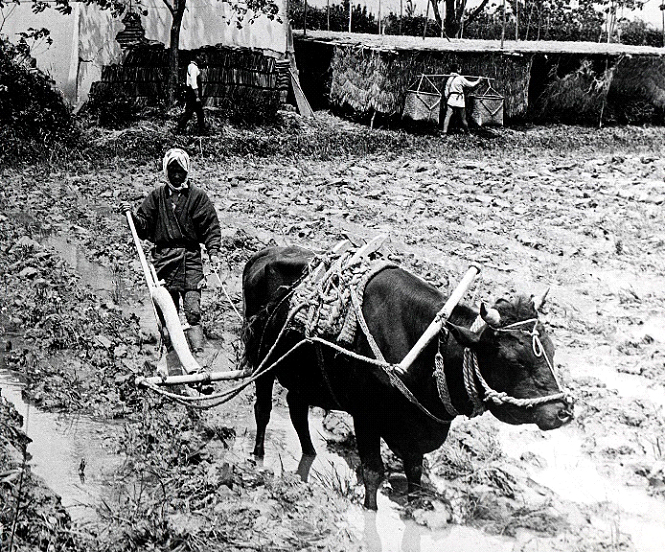
Between 1868 and 1910, British cow breeds were imported into Japan and crossed with native Japanese “Nambu” cattle, to increase size and milk production. The core breeds of Wagyu beef cows were born! In 1919 the Government introduced registration and selection of the “improved” Japanese Cattle. As a legacy of the feudal age, each prefecture implemented their own standards.

After full agricultural mechanization in the 1950’s, the focus on beef production changed from body size and growth rate to Marbling and beef quality. A National Marbling Score Index was introduced with other Progeny Performance Index’s in 1968, and Marbling Scores increased dramatically. The current Beef Marble Standard (BMS) is the assessment used in Japan to allocate a grade quality for beef.

Today, even as beef consumption grows in Japan, the number of breeders has diminished because of land availability. Wholesale prices for Wagyu beef have seen increases as high as 20% per year! In North America, even with a modest increase in supply, demand for quality beef has increased on average by 7% per year.
Wagyu beef is perhaps the most misunderstood brand in the Food Industry. No matter how many Michelin Star restaurant menus this delicacy graces, the real facts on Wagyu beef still tend to elude even the fiercest foodie and critic alike. There is a host of information and misinformation surrounding this product, (much of it being marketing gimmickry), due to the premium prices true Wagyu beef brings in the open market. (A dressed carcass from 100% Full Blood Wagyu cow can easily bring $10,000).
To clearly separate the various Wagyu product options available, we need to understand what the available options are. In North America, the culinary Wagyu market consists of two distinctly different types of Wagyu beef and, two completely separate Eating Experiences. True Wagyu beef is Full Blood Wagyu, the descendants of the Japanese cows and bulls imported from Japan in the late 1970’s, until shipments were stopped in 1997. That was when the breed was declared a National Treasure in Japan. During this twenty year period, it is estimated that only 200 cows and even fewer bulls left Japan for North American shores. Today, there are approximately 23,000 Full Blood Wagyu in North America out of a total cattle herd of about 94 million cows (.00025%). Craigmore’s Full Blood Wagyu herd is descended from those original 200 Imported Wagyu cows!

North American (top three) and Japanese (bottom two) Wagyu have different marbling patterns.
What is normally sold as “Wagyu” beef in North America, is a 50% cross between a Full Blood (or less), Wagyu bull and a Black Angus cow. This cross bred beef is referred to as North American Wagyu. This product is much more readily available and much more reasonably priced. This 50% cross bred Wagyu product surpasses USDA Prime Beef in quality, tenderness, and overall customer satisfaction! It has abundant Marbling and intense flavour. (An interesting side note, is that Canada imports more USDA Prime Beef in the world than any other country! The Packaging and Distribution Industry in Canada, emphasizes Lean Meat Yield % as a prerequisite objective for Canadian Cattle and Lamb Industry producers. As a result, the great majority of Canadian cattle (including Canadian Black Angus), do not have sufficient Marbling in the meat to attain the highest “Prime” grading level). Craigmore’s Black Angus seed stock originated in the USA and has been DNA tested to be in the top percentile for Marbling (IMF or Intra Muscular Fat in North America), the key ingredient necessary for “Prime Beef”.
Full Blood Wagyu cows have a genetic pre-disposition, allowing them to create massive amounts of Marbling into the muscle tissue. Other than Australian White Lamb, no other known livestock possesses this natural feature.
Full Blood Wagyu is so rich, most people cannot finish even an average sized steak. After a few bites, it can become overwhelming and a savoury with a rich earthy flavour the Japanese call “Umami” taking over. It is a subtle sensation, but impossible to ignore. Proper Wagyu beef from a Full Blood Japanese descendant has been categorized as half food experience and half historic ritual!
 Japanese Kobe Beef
Japanese Kobe Beef
Craigmore Farm has spent the past 30 years refining our Registered Black Angus genetics through the use of DNA and Data Measurement, retaining some of the very best Marbling animals in the breed. Three years ago, we purchased four of the finest Marbling bulls in the Full Blood Wagyu breed at the BAR Production Sale in Washington. The resulting 50% cross cows were bred Wagyu again, to give us a 3/4 Wagyu cross, we have Trademarked as Kotta Beef. Kotta means “exquisite” in Japanese. It is the right definition for our upscale North American Wagyu product.
If you’re in the mood for a full steak dinner, and you still want that intensive flavour, tenderness and 5 Star eating experience with a hint of “Umami” – all at a more modest price, our Kotta Beef is what you are looking for.
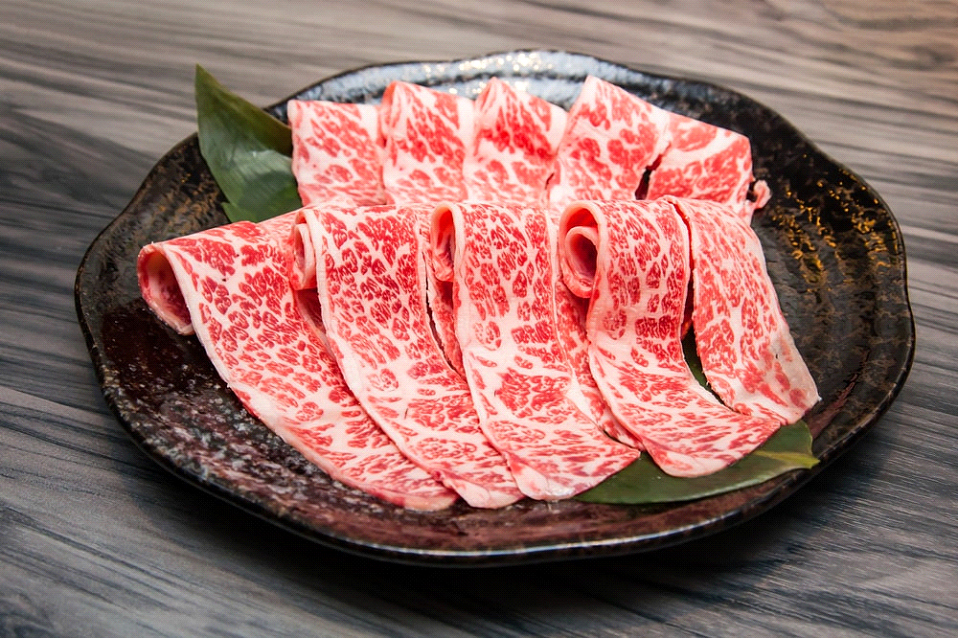
Speaking at the Australian Wagyu Association Conference, Dr. Tim Crave from the Deakin University School of Nutritional Science, confirmed Wagyu beef is not just rich in flavour, but has been deemed positive as a health diet choice!
“Wagyu beef is higher in healthy unsaturated fats, including Omega 3 and Omega 6 oils. The benefits include protection against heart disease, arthritis, and greatly reduced bad cholesterol (LDL), versus improved HDL (good cholesterol). Having higher HDL levels in the body is known to lower triglyceride levels in the blood, improving overall heart health and lowering blood pressure.
Even the saturated fat in Wagyu is different! 40% is a version called Stearic Acid, which is regarded as having minimal impact or actually reducing cholesterol levels.
Wagyu beef is higher in a type of fatty acid called Conjugated Linoleic Acid (CLA). CLA has shown to have potent Anti-Carcinogenic properties, as well as being an anti-inflammatory agent! Wagyu beef contains the highest amount of CLA per gram of any food product in the market! (About 30% more than other beef breeds).
Kotta Beef, our 75% Wagyu, 25% Angus Cross, is available on a limited basis, and must be booked in advance.
We do not sell specific cuts of beef. We sell only the complete carcass dressed. We will process the harvested carcass to your personal specifications if requested by our client.
For pricing and availability, please contact us at info@craigmorefarm.com.

fB26029 doB: 03/28/2016 tAtt: d8 male
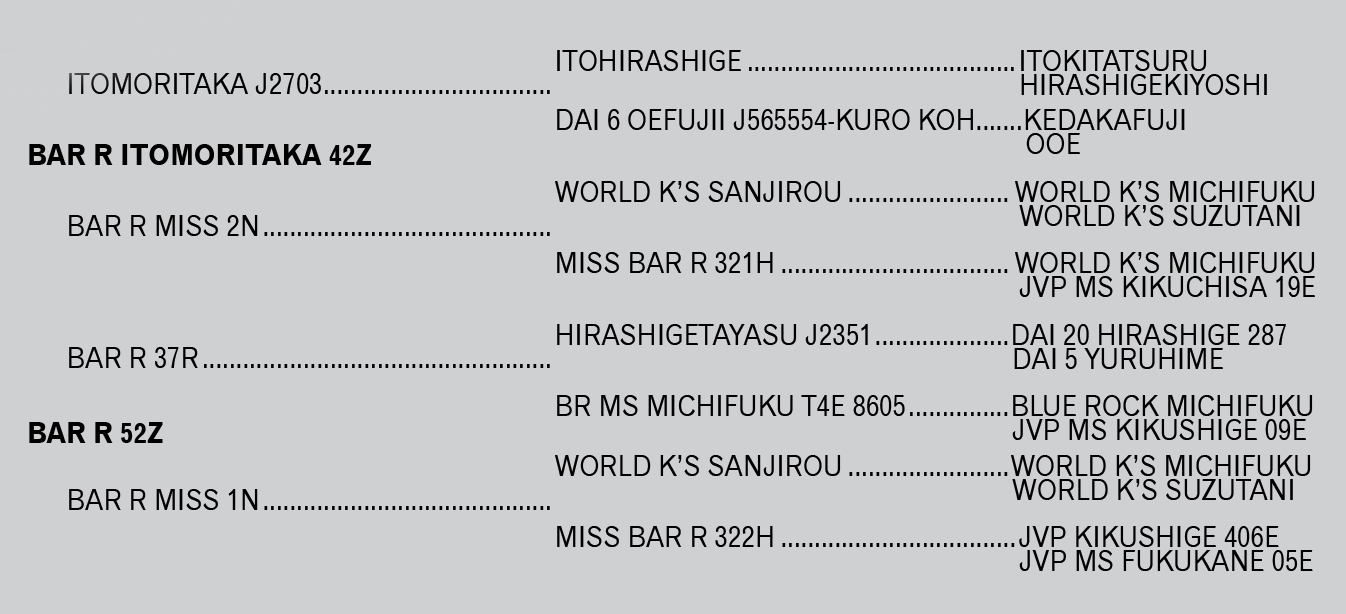
D8 is sired by Bar R Itomoritaka 42Z, a sire selected for putting milk in his daughters was found in the 2017 National Wagyu Sire Summary EPDs to be in the top 25% of Wagyu bulls for each of the three carcass traits marbling, ribeye area and backfat. D8 was the number 1 ranked RFI bull in our 2017 trial when compared to 27 other Wagyu bulls. He had an average daily gain of 2.5 lbs per day with a residual feed intake of -5.03 lb and scan ribeye area of 1.78 sq inch/cwt. These last two traits were the highest for any of the bulls evaluated in this trial. This is a bull that merits progeny test evaluation for carcass traits. We have collected CSS semen on this bull and retain semen interest in D8.
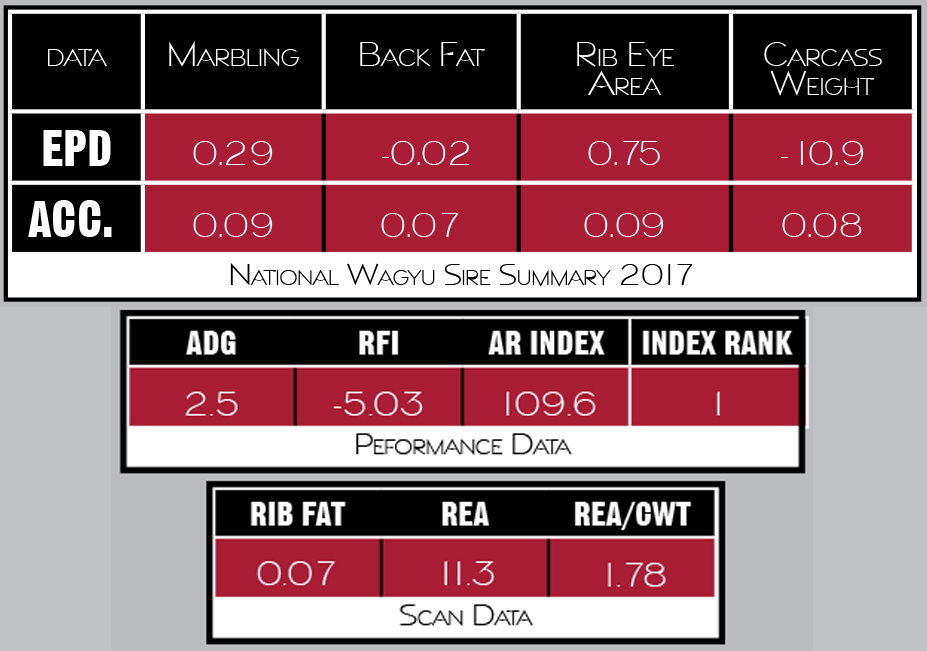
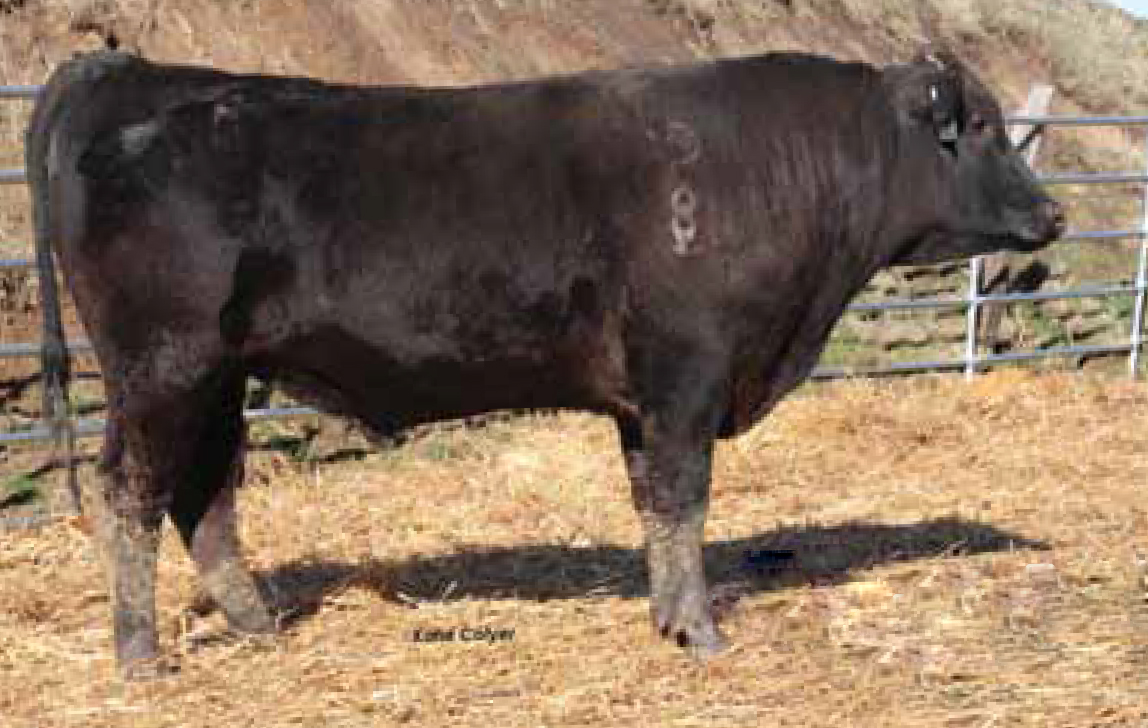
fB27528 doB: 05/04/2016 tAtt: d57 male

D57 is sired by Bar R Nakagishiro 55A a bull selected on growth and performance with a maternal grandsire Bar R Yasufuku 42K the third highest marbling EPD bull in the 2017 National Wagyu Sire Summary. The grandparents of this bull show one branch as growth and three branches as very high marbling. D57 was the number 2 ranked bull for residual feed intake at -2.16 lbs with an average daily gain of 3.2 lbs/day and a scanned rib eye area of 1.55 sq inch./cwt. D57 is a bull that should have very good marbling to go along with his performance genetics. We have collected CSS semen on this bull and Bar R Cattle Co. retains a semen interest in D57.


fB26032 doB: 04/04/2016 tAtt: d18 male

Here is a double bred WK Shigeshigetani bull from a half brother sister mating resulting in a 20% coefficient of inbreeding on D18. This means he will produce a very consistent calf crop being very similar in carcass and growth traits. His EPDs show him to be a very high valued carcass bull. His GrowSafe data ranks him 19th out of 26 bulls for the ADG-RFI index. The inbreeding many times lowers growth performance as seen in this bull, but when he is crossed out for example on commercial cows his calves will excel in performance due to heterosis. 3

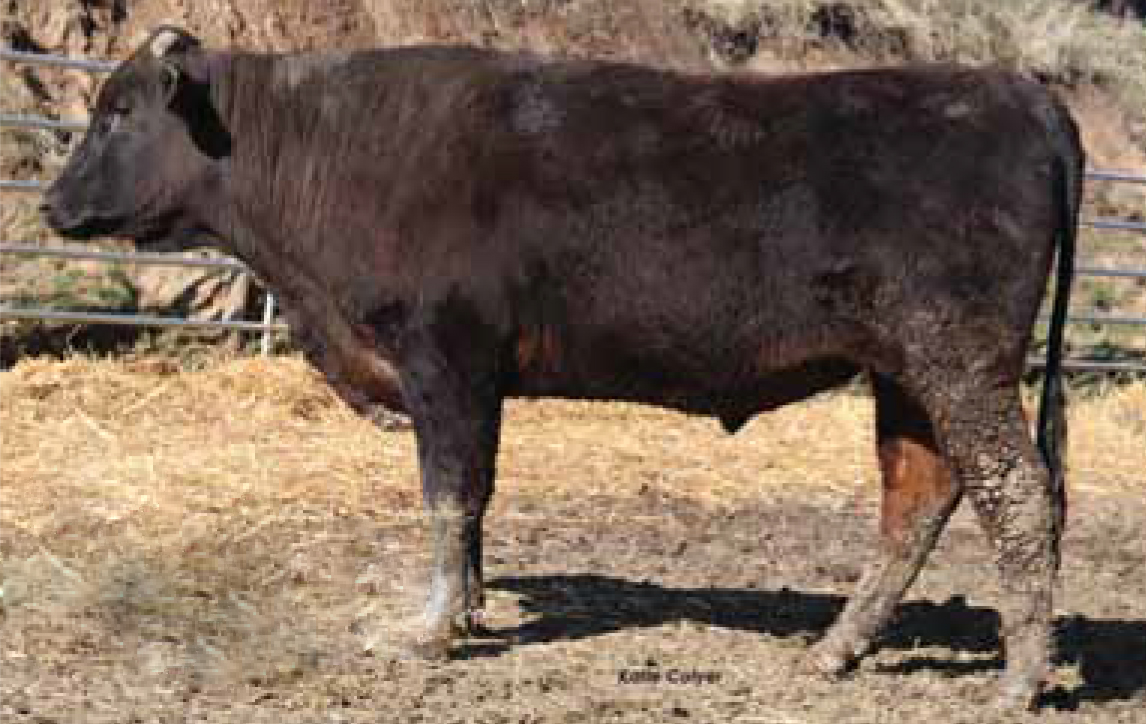
fB28219 doB: 03/23/2017 tAtt: e81 male
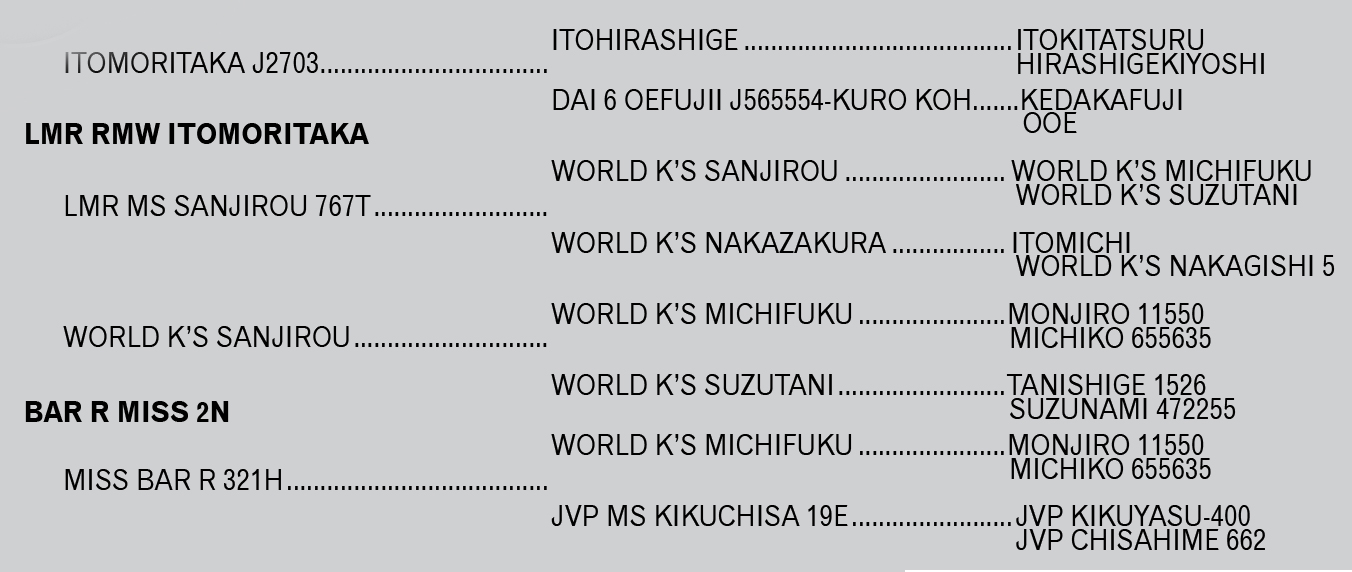
Lot 58 is sired by LMR RMW Itomoritaka (Rockey) a popular second generation bull known for growth and milk in his daughters out of cow Bar R 2N which can be said the best cow to come out of the Bar R Cattle Co. herd since she has four sons in the National Wagyu Sire Summary and three of these are in the top 25% for marbling. This son had an ADG of 2.62 lb and an RFI -3.75 lb which resulted in the 2nd highest ADG-RFI Index out of 21 bulls in the GrowSafe trial.
